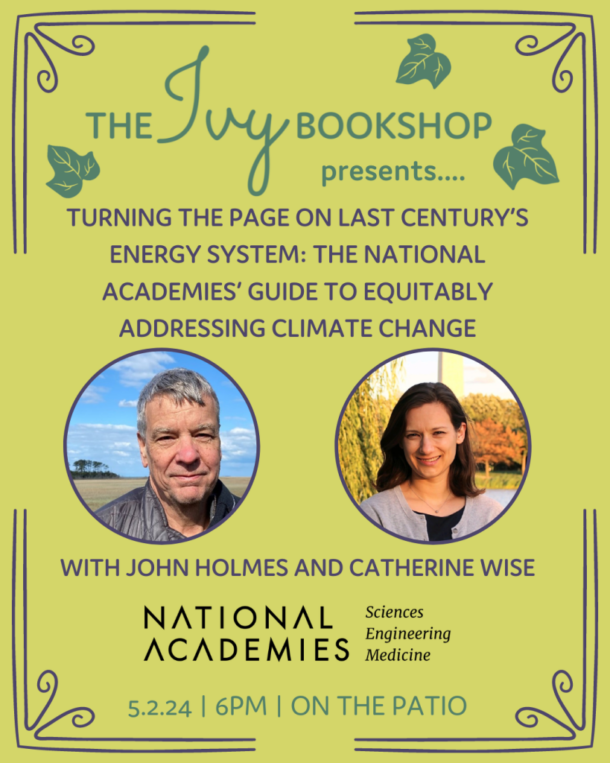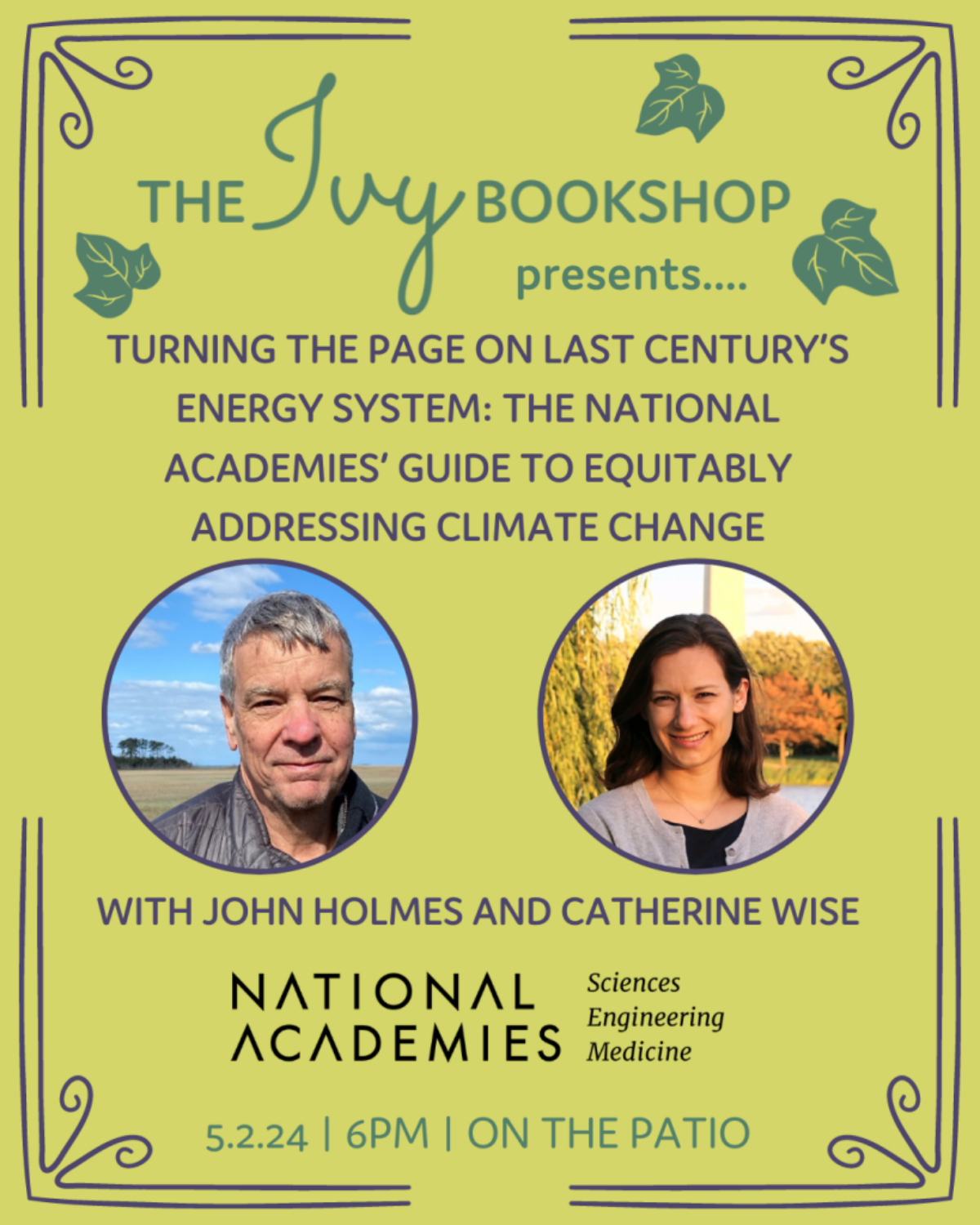
Turning The Page On Last Century's Energy System With The National Academies
What can and should be done to mitigate the impacts of climate change? How will these actions affect our daily lives? How do we ensure that the energy transition required to address climate change results in a just and equitable energy system? These daunting questions are at top of mind for many of us, as we experience record heat waves, severe storms, and devastating wildfires made worse by the warming climate.
Over the past several years, a committee of experts convened by the National Academies of Sciences, Engineering, and Medicine has worked to provide answers, publishing two consensus reports with recommendations for technological, societal, and policy solutions to “decarbonize” (i.e., significantly reduce harmful emissions from) our economy.
Learn more by joining us on the Ivy patio for a discussion of the opportunities and challenges that lie ahead in realizing a clean energy future.
Plus, choose from a selection of books on further reading curated by National Academies staff!
K. John Holmes is the senior director and scholar for the National Academies’ Board on Energy and Environmental Systems (BEES). The portfolio for BEES is broad and includes activities on climate mitigation and assessment, electricity system modernization, fuel economy technologies for light-duty vehicles, and energy innovation. Dr. Holmes is currently leading a major Academies initiative to consider the technological, societal, and policy issues related to deep decarbonization of the United States economic system. That work includes Accelerating Decarbonization in the United States Technology, Policy, and Societal Dimensions (National Academy Press, 2023). His other recent activities include: co-directing studies on the future of the electricity system and negative emissions technologies; directing a study on electricity system resiliency; and organizing workshops on sub-national climate assessment and scaling deep decarbonization technologies. He has directed studies and published on a range of topics including climate change, sub-national climate assessment, renewable electricity, air quality management, vehicle technologies, stratospheric ozone depletion, water resources management, and carbon emissions trading. He has a personal interest in the long-term development of technology and policy, and has published papers such as “A historical perspective on climate change assessment” and “A century of environmental technologies for light-duty vehicles” related to these interests. He received a B.S. from Indiana University, M.S.E. from University of Washington, and Ph.D. from The Johns Hopkins University.
Catherine F. Wise is a Program Officer with the Board on Energy and Environmental Systems at the National Academies of Sciences, Engineering, and Medicine. In this role, she facilitates consensus studies by expert committees that provide evidence-based scientific advice to the federal government and other stakeholder organizations on issues of energy policy. Her current and prior work has supported a wide range of energy topics, including energy innovation, advanced nuclear fuel cycles and reactors, energy system decarbonization, carbon management infrastructure, carbon utilization research and development, light-duty vehicle technologies, and fusion energy. Prior to joining the National Academies, Catherine worked as a graduate research assistant studying proton-coupled electron transfer in electrochemical systems and as a writing consultant assisting graduate and professional school students with academic writing projects. She received a B.S. in chemistry from the College of William and Mary and a Ph.D. in inorganic chemistry from Yale University.









